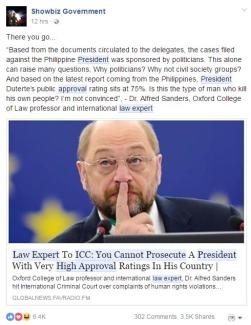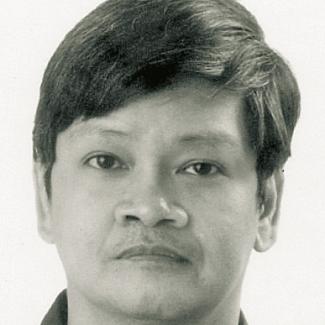Fake news
No lie is too blatant

In the election campaign two years ago, no lie was too blatant, no conspiracy story too primitive. Fake reports said the Pope as well as the Singapore government had endorsed Rodrigo Duterte’s candidacy. US President Barack Obama was falsely quoted as saying Benigno Aquino, the outgoing president, had made the Philippines suffer. Plans to “steal” the election were reported. The Duterte campaign fed fears of lawlessness and spawned resentment against the country’s corrupt elites.
Fake news sells because it stokes readers’ fears and hatreds, especially if aimed at selected audiences. Also it seems that when they use their mobile devices, many Filipinos just read headlines and not stories, possibly because accessing the entire story incurs additional data charges from the telco. It doesn’t help that a recent global survey by Ipsos MORI found that of 38 nationals sampled, Filipinos were the third most ignorant on specific issues such as religion, vaccination, murder and suicide rates and teenage pregnancy. Ironically they were also the third most confident about their knowledge.
Many have never learned how to tell a trustworthy website information from a propaganda outlet. They do not understand that quality media must convey more than one viewpoint and cannot simply endorse a single party or political leader.
The disinformation industry has not stalled since Duterte took office. The latest gems it has produced include the following fabrications:
- Agnes Callamard, special rapporteur for the United Nations High Commission on Human Rights, is a drug addict. Why? Because her hair is unkempt.
- The southern city of Marawi, pulverised in a five-month battle between government troops and Islamist militants, is rapidly and beautifully being rebuilt by the government. The proof? A photo of the harbour of the French resort town Nice.
- Oxford University professor Alfred Sanders says Duterte can’t be prosecuted for crimes against humanity because of his high approval ratings. There’s no such professor – and the accompanying photo is that of German politician Martin Schulz. (acr)
Link
Ipsos/Mori poll: Perils of perception.
https://www.ipsos.com/ipsos-mori/en-uk/perils-perception-2017














